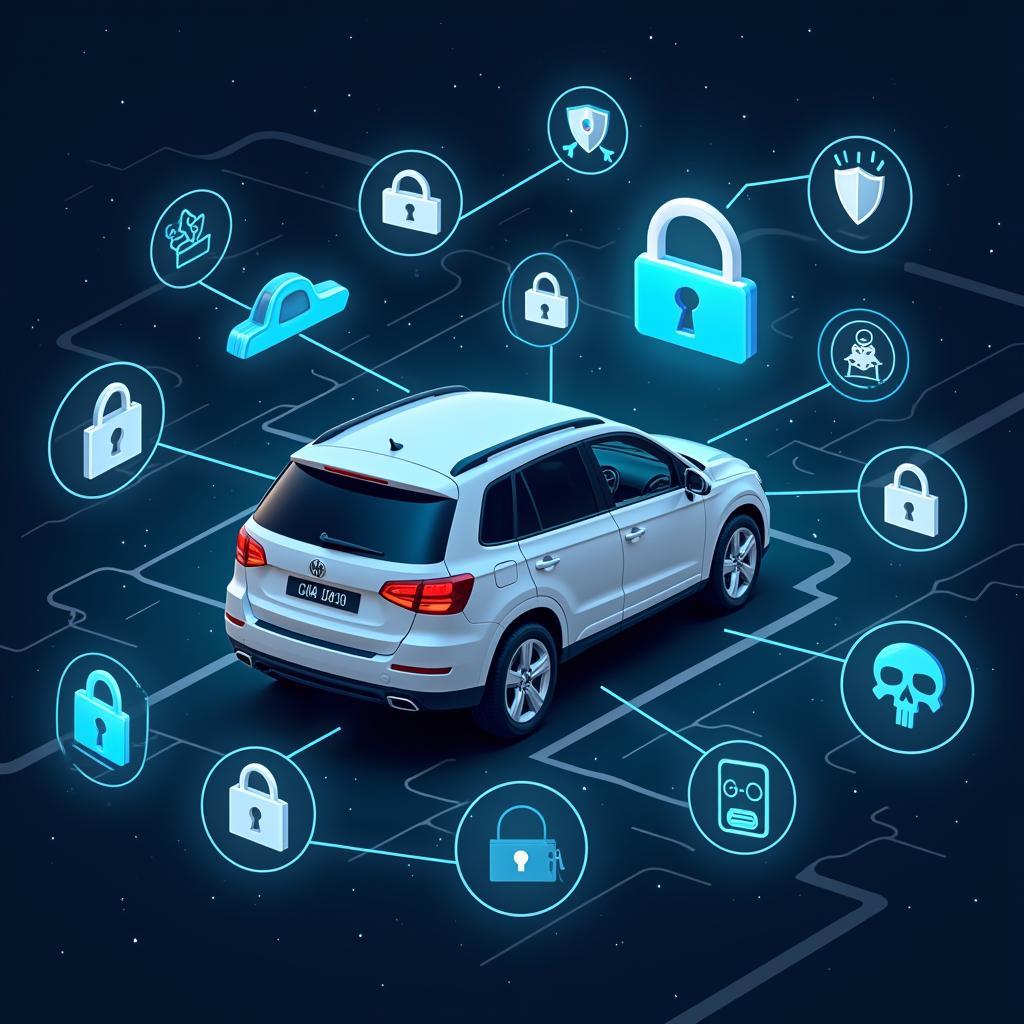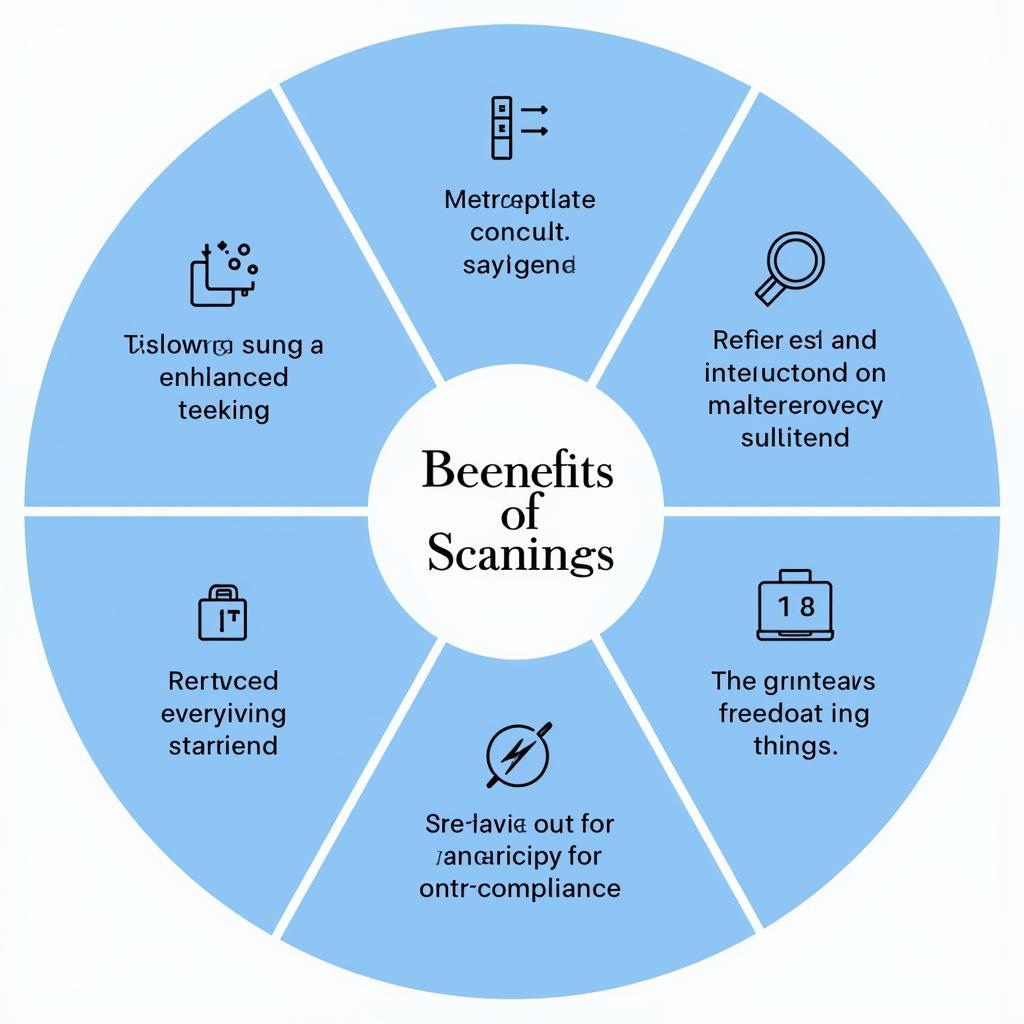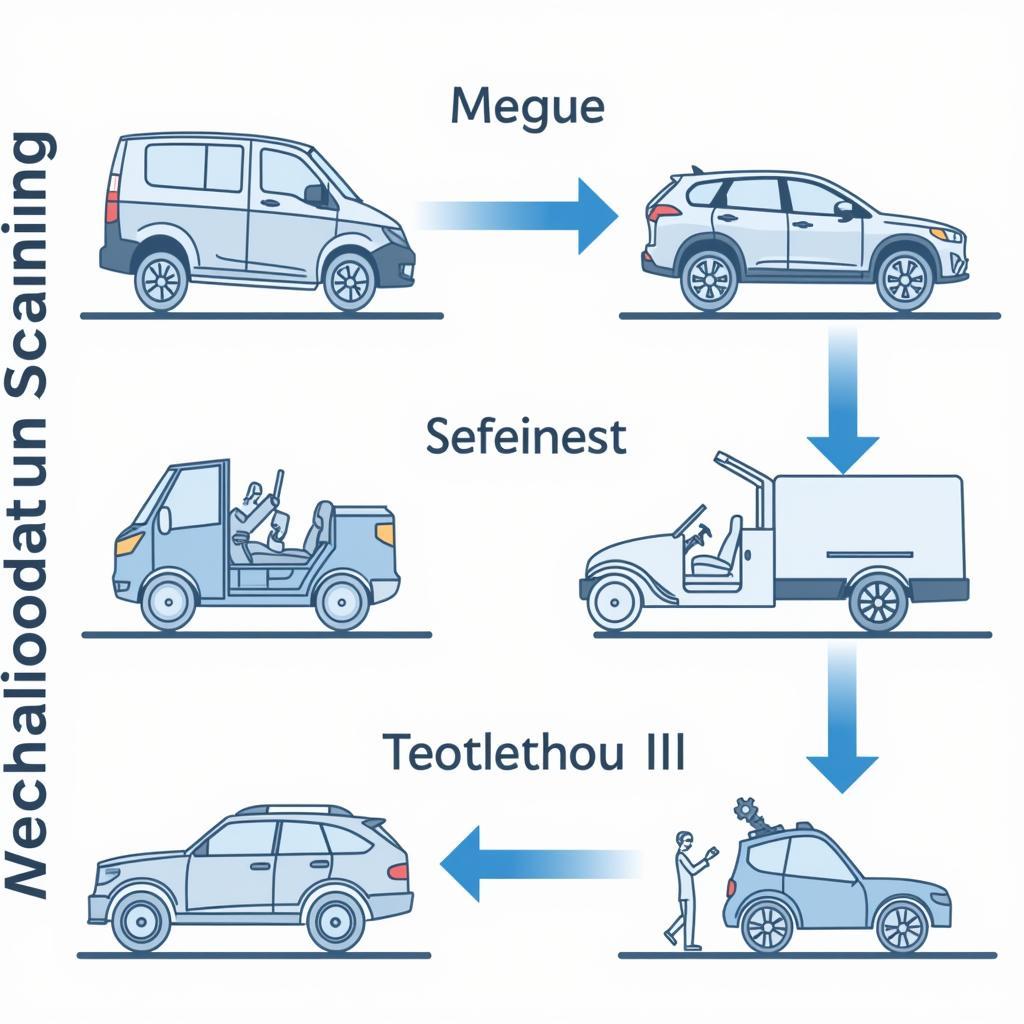Whitehat Scanning Tools are becoming increasingly crucial in the automotive industry as vehicles become more connected and reliant on complex software systems. These tools play a vital role in identifying and mitigating potential cybersecurity vulnerabilities before they can be exploited by malicious actors. This comprehensive guide will delve into the world of whitehat scanning tools, exploring their importance, functionalities, and how they can be effectively utilized to enhance the cybersecurity posture of modern vehicles.
The Rising Importance of Automotive Cybersecurity
 Connected Car Cybersecurity Threats
Connected Car Cybersecurity Threats
The automotive landscape is undergoing a rapid transformation with the advent of connected and autonomous vehicles. Cars today are equipped with sophisticated electronic control units (ECUs), sensors, and software that enable advanced features, connectivity, and data exchange. While these advancements offer numerous benefits, they also introduce potential cybersecurity risks.
Hackers and malicious actors are constantly seeking vulnerabilities in connected car systems to gain unauthorized access, steal data, or even control vehicle functions. This underscores the paramount importance of robust cybersecurity measures in the automotive industry.
What are Whitehat Scanning Tools?
 Whitehat Scanning Tool in Action
Whitehat Scanning Tool in Action
Whitehat scanning tools are software programs or hardware devices specifically designed to simulate real-world cyberattacks in a controlled environment. Unlike malicious hacking attempts, whitehat scanning is conducted ethically and legally by security professionals to identify and assess vulnerabilities before they can be exploited.
These tools employ various techniques to probe systems for weaknesses, including:
- Network Scanning: Identifying active devices, open ports, and potential entry points in the vehicle’s network.
- Vulnerability Scanning: Detecting known vulnerabilities in software, firmware, and protocols used in the vehicle.
- Penetration Testing: Simulating real-world attacks to exploit identified vulnerabilities and assess the potential impact.
- Fuzz Testing: Inputting large amounts of random data to test system resilience and identify unexpected behaviors.
Benefits of Using Whitehat Scanning Tools
 Benefits of Whitehat Scanning
Benefits of Whitehat Scanning
Implementing whitehat scanning tools in the automotive development and maintenance processes offers several key benefits:
- Early Vulnerability Detection: Identifying and addressing vulnerabilities early in the design and development cycle significantly reduces the risk of costly and time-consuming fixes later on.
- Enhanced Vehicle Security: By proactively identifying and mitigating security weaknesses, whitehat scanning strengthens the overall cybersecurity posture of vehicles, protecting both manufacturers and consumers.
- Compliance with Regulations: As automotive cybersecurity regulations become increasingly stringent, whitehat scanning tools help manufacturers demonstrate compliance and avoid potential penalties.
- Improved Brand Reputation: A strong cybersecurity track record enhances brand reputation and builds consumer trust in an increasingly security-conscious market.
How to Choose the Right Whitehat Scanning Tool
Selecting the most appropriate whitehat scanning tool depends on various factors, including the specific needs of the automotive application, budget constraints, and the technical expertise of the users. Some key considerations include:
- Target Systems and Protocols: Ensure the tool supports the specific ECUs, communication protocols (e.g., CAN, LIN, Ethernet), and software platforms used in the target vehicle.
- Scanning Capabilities: Evaluate the tool’s ability to perform various types of scans, such as network scanning, vulnerability scanning, and penetration testing.
- Reporting and Analysis: The tool should provide comprehensive and easy-to-understand reports that highlight vulnerabilities, their severity levels, and remediation recommendations.
- Ease of Use: Consider the tool’s user interface, documentation, and support resources to ensure ease of use for technicians and engineers.
Integrating Whitehat Scanning into the Automotive Lifecycle
 Whitehat Scanning in Automotive Lifecycle
Whitehat Scanning in Automotive Lifecycle
To maximize the effectiveness of whitehat scanning tools, it is essential to integrate them seamlessly into the entire automotive lifecycle:
- Design and Development: Incorporate security testing from the initial design phase, using whitehat scanning tools to identify and address vulnerabilities in software code, hardware components, and communication protocols.
- Production: Conduct thorough security assessments of pre-production vehicles and components to ensure the integrity of the manufacturing process and prevent vulnerabilities from being introduced.
- Post-Production: Utilize whitehat scanning tools for ongoing security monitoring, vulnerability assessments, and penetration testing to identify and address emerging threats throughout the vehicle’s lifespan.
Conclusion
As the automotive industry continues to embrace connectivity and automation, cybersecurity must remain a top priority for manufacturers, suppliers, and service providers. Whitehat scanning tools provide an indispensable means to proactively identify and mitigate vulnerabilities, ensuring the safety, security, and reliability of modern vehicles. By integrating these tools into every stage of the automotive lifecycle, we can create a more secure and resilient transportation ecosystem for the future.
For expert guidance on choosing and implementing the right whitehat scanning solutions for your automotive needs, contact ScanToolUS at +1 (641) 206-8880 or visit our office at 1615 S Laramie Ave, Cicero, IL 60804, USA. Our team of experienced professionals is dedicated to helping you enhance your automotive cybersecurity posture.
